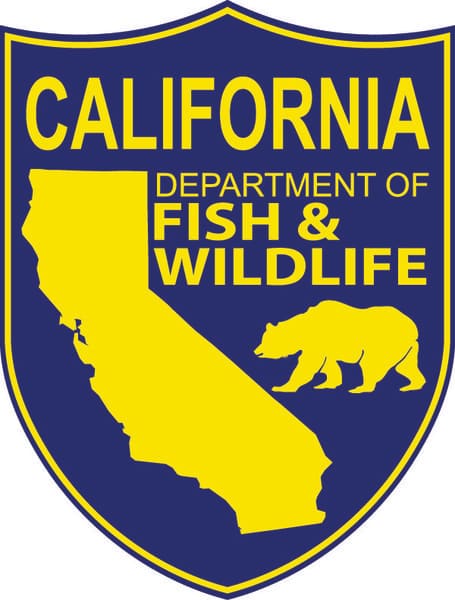California DFW: Help Save Endangered Species at Tax Time

California’s wild animals and plants need your help, and there’s an easy way to do it! Just make a voluntary contribution on line 403 and/or line 410 of your state income tax return (Form 540). By contributing any amount over one dollar you can support the Department of Fish and Wildlife (CDFW) Rare and Endangered Species Preservation Fund and/or the California Sea Otter Fund. What you donate this year is tax deductible on next year’s return. Californians can receive state income tax credit from the Franchise Tax Board for helping wildlife.
“The voluntary contributions Californians make at tax time are incredibly helpful in our efforts to save threatened and endangered species,” said CDFW Director Charlton H. Bonham. “These funds have provided critical support for many state-listed species, including the Tiburon mariposa lily, Owens pupfish, blunt-nosed leopard lizard, mountain yellow-legged frog, great gray owl, Sierra Nevada red fox and many more. These donations help protect California’s exceptional biodiversity.”
There are 387 listed plant and animal species in the state, from little “bugs” that most of us have never heard of, to the iconic California sea otter. Money raised through the tax check-off program helps pay for essential CDFW research and recovery efforts, and critical updates on the status of state-listed species to help assure their conservation.
California is one of 41 states that allows taxpayers to make voluntary, tax-deductible contributions to worthwhile causes on their state returns. Since 1983, the tax check-off fund for Rare and Endangered Species has raised more than $18 million and supported numerous projects, including surveys for the endangered Sierra Nevada red fox. Support from California taxpayers has enabled wildlife biologists to achieve important recovery milestones to conserve vulnerable species.
More information on the Rare and Endangered Species Preservation tax check-off program is available at www.dfg.ca.gov/taxcheck.
A second tax check-off fund was created in 2006 specifically to facilitate recovery of the California sea otter, which is listed as a Fully Protected Species under the state law and threatened under the federal Endangered Species Act. According to the most recently completed survey, there are fewer than 3,000 sea otters in California waters. This small population is vulnerable to oil spills, environmental pollution, predation by white sharks and other threats. Many sea otter deaths have been linked to pollution flowing from land to the sea, including fecal parasites, bacterial toxins, road and agricultural run-off, and chemicals linked to coastal land use.
According to CDFW Wildlife Veterinarian and lead sea otter pathologist Melissa Miller, the California Sea Otter Fund provides essential funding to help state scientists better understand and trace the causes of sea otter mortality, identify factors limiting population growth and collaborate with other organizations to prevent the pollution of California’s nearshore marine ecosystem. This fund consists entirely of voluntary contributions from taxpayers of the state of California. The California Sea Otter Fund has become especially vital during the current economic downturn, because other sources of support for sea otter conservation and research have decreased or disappeared entirely. There are no other dedicated state funding sources available to continue this important work.
You can support this research by making a contribution on line 410 of your state tax form 540, the California Sea Otter Fund. CDFW works with the California Coastal Conservancy, Friends of the Sea Otter, Defenders of Wildlife and others to promote the Sea Otter Fund. Visit the website at www.dfg.ca.gov/taxcheck and our Facebook page at https://www.facebook.com/SeaOtterFundCDFW.

